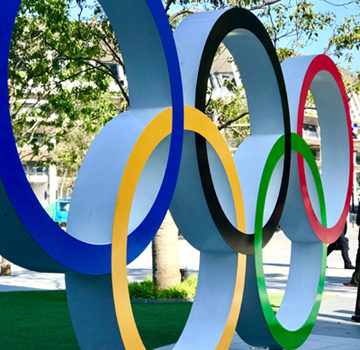
The Tokyo Olympics has been special for several reasons as it comes in the midst of pandemic and has seen best performance of our contingent. I am not a sports analyst and I intend to write about what management lessons could we learn from Olympics.
I am sharing these lessons through stories.
1. No substitute for Preparation, focus and hard work – Look at our women hockey team. They started their intense preparations about a year back. They did a break down of all small things that will help them to be successful. They worked on Stamina, Endurance, speed, Aerial shot, ball control, running fast etc. and held focused training sessions. PV Sindhu worked muscle by muscle. She did workouts to strengthen the muscle that helps her jump in the court, helps her lunge forward to reach the net and the agility to cover the court. She too worked on her mental toughness through relaxation exercises, swimming. Results are there to see. Playing in such energy sapping conditions, against stronger opponents, our teams made the country proud. If we want to be successful, we also need to break that down to the smallest of things and make improvements in each of them through focused work. For more on this please read the book “Atomic habits”.

2. Believe in your abilities – Our badminton doubles pair of Chirag Shetty and Rankireddy were playing against the top ranked Chinese Taipei duo who have a superior track record. Nothing deterred them in putting their best and defeating them. Alexander Zeyerev was up against the top seed Novak Djokovic. Zeyerev is criticised for not being mentally tough as he had given away his two set advantage against Dominic Theim in US open finals last year. But he believed in his abilities and went on to unleash of barrage of forehand and backhand shots to demolish the top ranked Serb. He went on to bag the gold medal too, only the second German after Steffi Graph. Similarly we too need to believe on our ability and just focus on giving our best without spending our energies on the the opponents. The more we work on our abilities, higher are the chances.
3. Too much competition leads to stress and ruins our happiness – One of the memorable instances happened in High Jump. Barshim of Qatar and Tamberi of Italy were tied at 2.37m after three failed attempts each at 2.39. Officials asked for a jump off to decide the winner by which Tamberi withdrew citing an injury. What Barshim said was “Could we share gold” which was accepted. Given the intense rivalry between these two athletes who never won Gold at olympics, Barshim could have half gold medal. But he did not see Tamberi as a competitor and was looking at win win. Today rival automobile companies are collaborating and sharing products/technologies to create a symbiotic growth. How often we tend to compete with our own colleagues across functions in our own organization? For not serving customer on time, we blame Manufacturing, manufacturing blames Supply chain and they blame finance. This win lose, lose lose game does not help anyone. Focus on how you could collaborate and ensure everyone emerges successful.
4. No short cut to success. Anyone indulging in wrongdoing will be caught some day or other and it will hurt – 2012 London Olympics saw a record number of 135 athletes, 39 medalist’s (13 of them had won Gold) testing positive for prohibited substances. 65 of them were caught in re testing. Authorities decided to keep the samples for 10 years to help detect substances through new technologies in future as doping was becoming very scientific. A very curious case was of Russian wrestler (late) Besik Kudukhov whose sample was found positive for banned substance in retesting in 2016, good 4 years after the event and three years after his untimely death. Yogeshwar Dutt became eligible for Silver but he did not want it and said let Kudukhov family retain the medal. Family was able to retain the medal on compassionate grounds but not the reputation. Similarly any wrong doing, unethical practices, not adhering to accounting standards may go undetected for sometime but eventually will be caught some day or other and it will hurt us very badly.
Life is a wonderful journey if we learn continuously and become better on an everyday basis. James Clear, the author of book , Atomic Habits says “The secret of getting results that last is to never stop making improvements” … true.
About author: Mr. Pattabiraman Nagarajan is a HR professional, Consultant, trainer and an ICF certified coach. Has managed organization change and aligned HR practices to ensure business growth. He holds master degree in Social work and a PG Diploma in Business Management from IIM Trichy. He could be reached at npattabiraman@relyonus.in
Other articles by the author : Click HERE
Title Image Credit: Photo by Alex Smith on Unsplash






